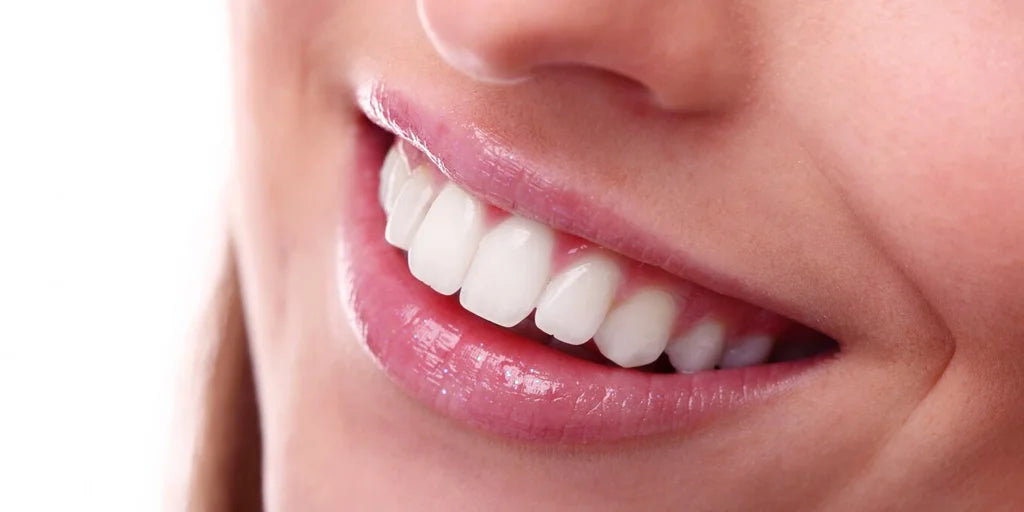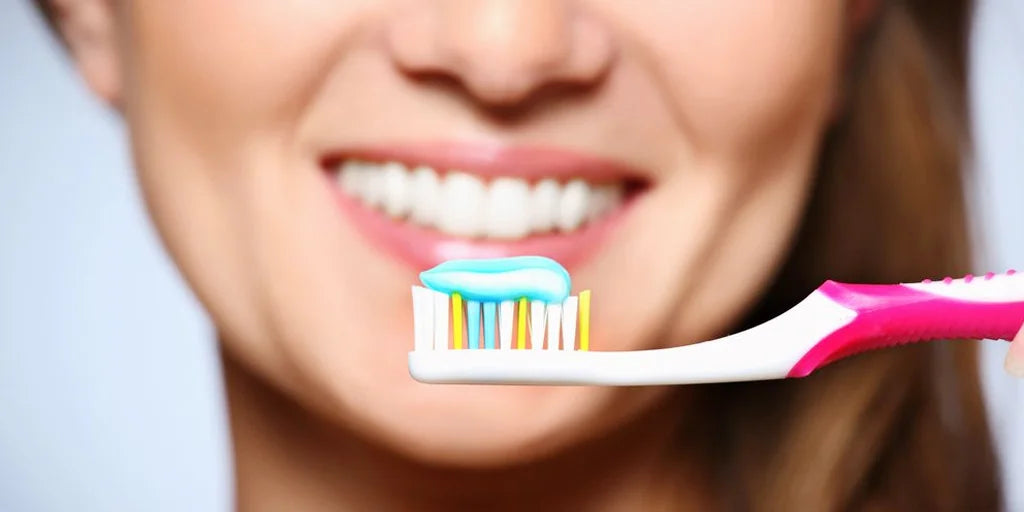Table of Contents:
The importance of water for dental health
The link between water consumption and reduced risks of cavities
How drinking water with fluoride can strengthen tooth enamel
Tips for drinking water to maintain good oral hygiene
Additional measures for maintaining good oral hygiene
FAQs
Conclusion
Water benefits your teeth by promoting saliva production, washing away bacteria, and reducing plaque. Hydration supports healthy gums and prevents dry mouth. Water with fluoride protects enamel, preventing cavities and strengthening teeth. Aim for 8 glasses daily, hydrate after sugary foods, and carry a water bottle. Combine hydration with oral care for optimal dental health. Remember, brushing, flossing, and regular dental check-ups are crucial. Prioritize a balanced diet and preventive treatments like sealants. Take steps to preserve your oral health, starting with drinking water—your teeth will thank you.
The importance of water for dental health
The role of water in maintaining oral health
To maintain optimal oral health, adequate water intake is essential for keeping your teeth and gums healthy. Water consumption plays a crucial role in oral hydration, helping to rinse away food particles and bacteria that can lead to plaque buildup and cavities.
Drinking water throughout the day also promotes saliva production, which contains essential minerals like calcium and phosphate that strengthen tooth enamel. Additionally, hydration benefits extend to supporting healthy gum tissue and preventing dry mouth, which can contribute to bad breath and an increased risk of dental issues.
The significance of hydration for saliva production
Ensuring adequate hydration levels can significantly impact saliva production, a key factor in maintaining dental health. Drinking water is vital in keeping your mouth hydrated, essential for optimal saliva production. Saliva benefits oral hygiene by washing away food particles and bacteria, helping to prevent tooth decay and gum disease. Hydration is crucial for protecting tooth enamel, as saliva is a natural defense mechanism against acidic attacks on the teeth.
How water helps in removing food particles and bacteria from the mouth
Water flushing is crucial in rinsing away food particles that may get stuck between your teeth or the gum line. Drinking water helps wash away these particles, reducing the chances of plaque buildup and cavities. Additionally, water helps in removing bacteria from your mouth. By swishing water around and staying hydrated, you can dilute the acids produced by bacteria, limiting their harmful effects on your teeth.
The link between water consumption and reduced risks of cavities

Drinking adequate water daily can significantly decrease your chances of developing cavities. Water intake and cavity prevention go hand in hand. Drinking water helps maintain saliva production in the mouth, which is crucial for washing away food particles and acid-producing bacteria that can lead to tooth decay. Hydration and dental health are closely related, as dry mouth can increase the risk of cavities.
By consistently drinking water throughout the day, you can create an environment that's less conducive to cavity-causing bacteria in your mouth. This simple habit keeps you hydrated and promotes the remineralization of your teeth, making them stronger. Therefore, drinking water for strong teeth is a proactive step you can take to reduce the likelihood of cavities and maintain good oral health. Remember, a well-hydrated mouth is a healthier mouth.
How drinking water with fluoride can strengthen tooth enamel
Consuming water that contains fluoride can strengthen tooth enamel. Fluoride benefits oral health by protecting enamel, the outer layer of teeth, from acid attacks that can lead to decay. Drinking fluoride helps to remineralize and strengthen your enamel, making it more resistant to harmful bacteria and acids that cause cavities. This enamel protection is essential for maintaining strong and healthy teeth over time.
Increasing your water intake, especially water with added fluoride offers multiple oral health benefits. Not only does it help prevent cavities by fortifying your enamel, but it also promotes hydration, which is crucial for overall health. The correlation between hydration and tooth strength is significant, as staying hydrated supports saliva production, aiding in the remineralization process of your teeth. By choosing fluoride-rich water for hydration, you're actively contributing to the protection and strength of your tooth enamel.
Tips for drinking water to maintain good oral hygiene

To maintain good oral hygiene, ensure you drink adequate water throughout the day. Proper hydration techniques are essential for overall health, including oral care. Aim to drink at least 8 glasses of water daily to promote saliva production, which helps wash away food particles and bacteria, reducing the risk of cavities and gum disease.
Monitoring your water intake is crucial for oral health. Carry a reusable water bottle throughout the day, especially after meals. This habit not only keeps you hydrated but also aids in maintaining a clean mouth environment. Additionally, consider drinking water after consuming sugary or acidic foods and beverages to neutralize the acids and protect your enamel.
Incorporating oral care strategies alongside adequate water intake can enhance your dental health. Remember to brush your teeth twice daily, floss daily, and visit your dentist regularly. Drinking water can complement these practices by assisting in removing debris and maintaining a balanced oral pH. Combining proper hydration techniques with consistent oral care can promote good oral hygiene and reduce the risk of dental problems.
Additional measures for maintaining good oral hygiene
Brushing and flossing: the basics of oral hygiene

Maintain optimal oral health by consistently brushing and flossing your teeth as part of your daily routine. Using the proper technique is essential to effectively remove plaque and food particles from all surfaces of your teeth. Make sure to brush gently in circular motions for about two minutes, reaching the front, back, and chewing surfaces.
Flossing should be done at least once daily to clean between teeth and along the gumline where a toothbrush can't reach. Incorporate these habits into your routine to prevent cavities, gum disease, and bad breath. Use practical tools like a soft-bristled toothbrush and dental floss to keep your smile healthy and bright.
Regular dental check-ups and professional cleanings
Regular dental check-ups and professional cleanings are essential for maintaining optimal oral health and preventing potential issues. These routine visits are crucial to your dental hygiene and preventive care. During regular check-ups, your dentist can identify any early signs of tooth decay or gum disease, providing professional advice on addressing them effectively.
Professional dental cleanings help remove plaque and tartar buildup that regular brushing and flossing may miss, contributing to better oral health. By staying committed to attending regular check-ups and dental cleanings, you're taking proactive steps toward preserving your oral health in the long term.
Dental treatments to address tooth decay and gum disease

To effectively address tooth decay and gum disease, consider dental treatments as additional measures for maintaining good oral hygiene. Preventive measures such as dental sealants and fluoride treatments can help protect teeth from decay.
Regular professional cleanings and check-ups are essential to catch any issues early on. If tooth decay or gum disease is already present, your dentist may recommend treatment options like fillings, root canals, or gum disease therapy.
Proper oral care maintenance at home, including brushing twice a day, flossing, and using mouthwash, is crucial in conjunction with these treatments. By staying proactive with preventive measures and seeking timely treatment, you can help preserve your oral health and prevent further complications.
The role of diet in promoting dental health
Promoting dental health through a balanced diet is essential for maintaining strong teeth and gums. Diet and hydration play a crucial role in oral health. Opt for water over sugary drinks to stay hydrated and help wash away food particles that can lead to decay.
When making food choices, prioritize nutrient-dense options like fruits, vegetables, dairy products, and lean proteins. These choices provide essential vitamins and minerals that help strengthen teeth and promote gum health. The nutritional impact of a well-rounded diet extends beyond overall health to include maintaining a healthy mouth.
FAQs
Is there a specific temperature of water that is best for dental health?
Room-temperature water is best for enamel health. Cold or hot water can lead to sensitivity. Room-temperature water hydrates effectively, benefiting overall health. Stick to neutral temperatures to maintain strong teeth.
Are there any adverse effects of drinking too much water on dental health?
Drinking excessive water can impact tooth enamel due to increased exposure to acids. Proper hydration levels without overdoing it are vital. Be mindful of your water consumption to safeguard your dental health.
Conclusion
In conclusion, drinking water is crucial in maintaining good oral hygiene and preventing dental problems. By staying hydrated and choosing water with fluoride, you can help strengthen your tooth enamel and reduce the risk of cavities. Remember to drink water regularly throughout the day and consider other measures like brushing and flossing to keep your teeth healthy and strong. Your smile will thank you for it!

















